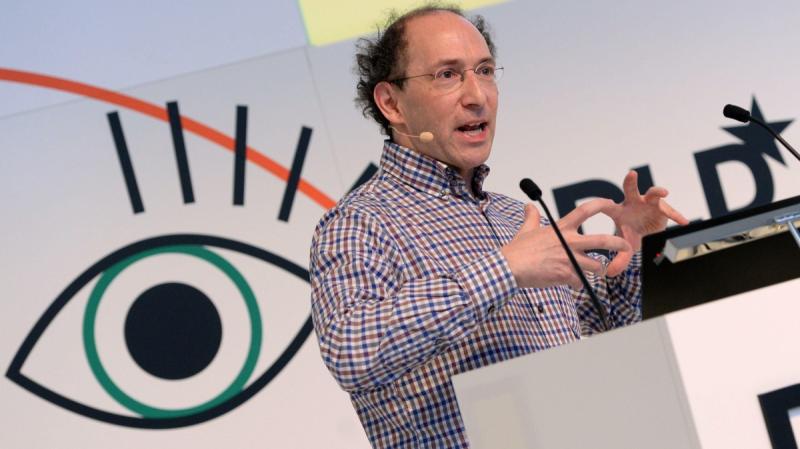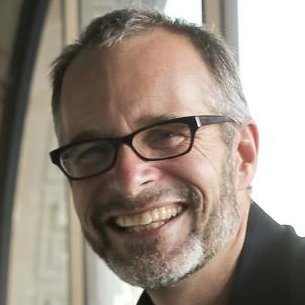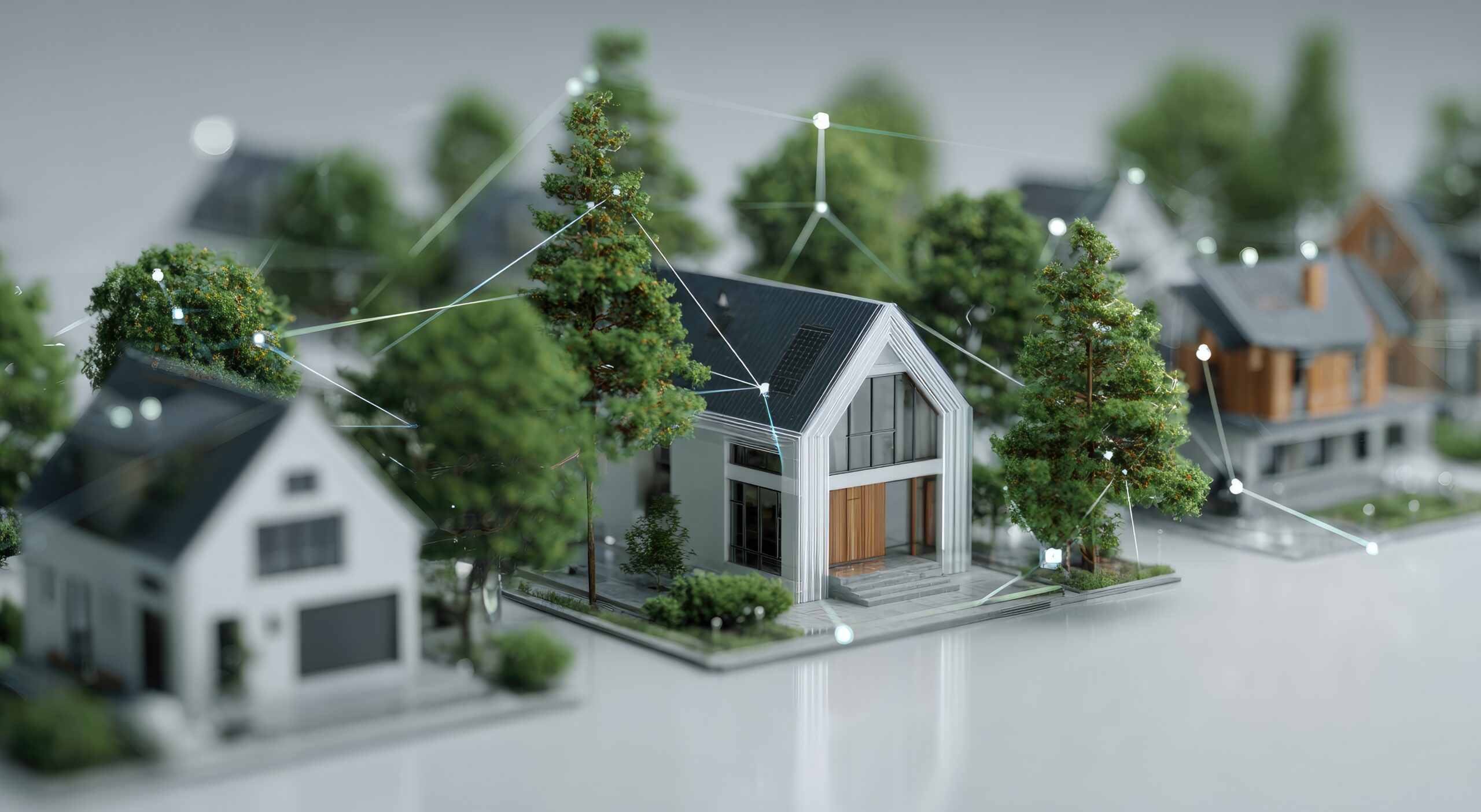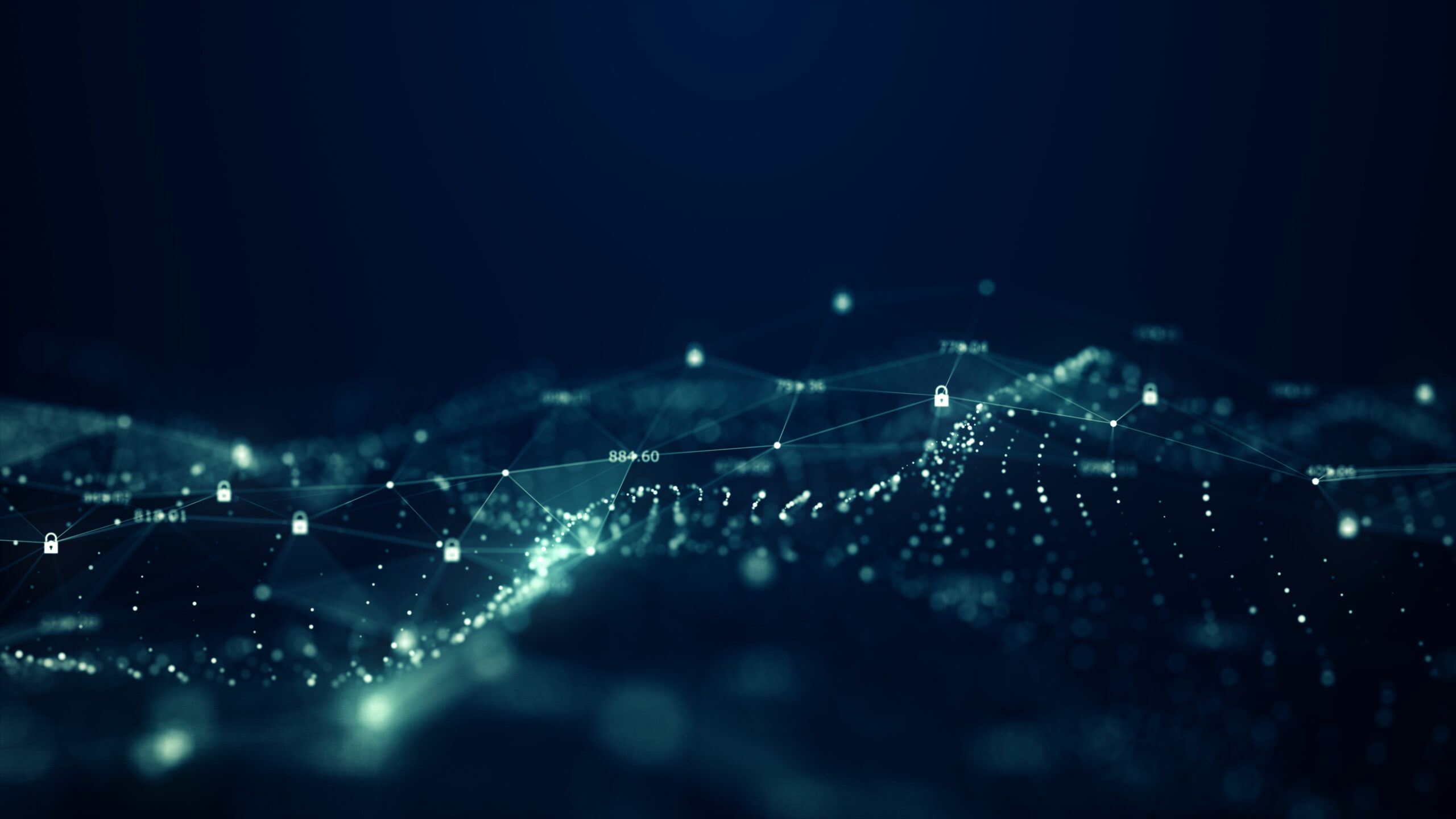Biotechnology
Synthetic biology: new capabilities to understand, modify, and even create new life, by Andrew Hessel
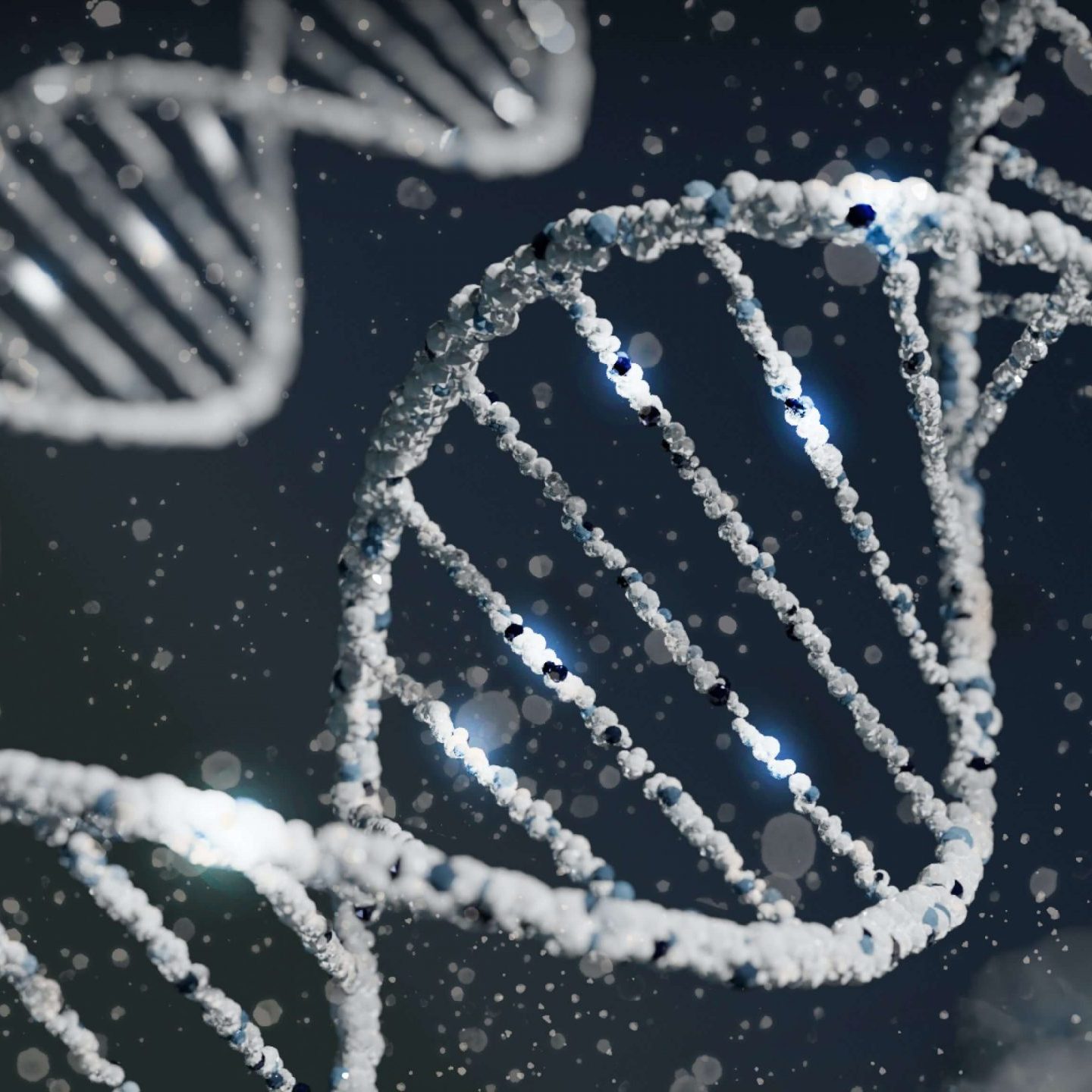
Synthetic biology will revolutionize the way we identify diseases and treat aging. Andrew Hessel, co-founder and chairman of the Center of Excellence for Engineering Biology and the Genome Project, outlines the challenges and opportunities of this intersection between computing, robotics and bioscience
We interviewed Andrew Hessel, Future Trends Forum expert, about his new book: The Genesis Machine: Our Quest to Rewrite Life in the Age of Synthetic, exploring the challenges and opportunities of synthetic biology. This interview is part of our #FIBKVoices initiative, which aims to bring you closer to the Foundation’s community of experts.
Hessel, a pioneer and an expert in the field of synthetic biology, is a microbiologist and geneticist. He is the president of Humane Genomics, an early-stage company developing synthetic viruses for oncology. Also the co-founder and chairman of the Center of Excellence for Engineering Biology and the Genome Project-write, the international scientific effort to engineer large genomes, including the human genome. Andrew has been Singularity University faculty since 2009. His goal is to help people better understand and use living systems to meet the needs of society.
As Andrew says in this speech at one of the Foundation’s Future Trends Forum, synthetic biology is genetic engineering using digital tools. And biological software is viruses.
Andrew Hessel’s new book
The Genesis Machine, the book which is the focus of this interview, was co-written with Amy Webb, CEO of the Future Today Institute, a leading foresight and strategy firm that helps leaders and their organizations prepare for complex futures. Amy pioneered a data-driven, technology-led foresight methodology that is now used within hundreds of organizations. Forbes called Amy “one of the five women changing the world.”
Synthetic biology will revolutionize how we identify disease and treat aging and how we nourish ourselves. This fast-growing field—which uses computers to modify or rewrite genetic code—has created revolutionary, groundbreaking solutions such as the mRNA COVID vaccines, IVF, and lab-grown hamburger that tastes like the real thing. It gives us options to deal with existential threats: climate change, food insecurity, and access to fuel.
But there are significant risks. Who should decide how to engineer living organisms? Whether engineered organisms should be planted, farmed, and released into the wild? Should there be limits to human enhancements? What cyber-biological risks are looming? Could a future biological war, using engineered organisms, cause a mass extinction event?
The Genesis Machine provide the background for thinking through the upcoming risks and moral dilemmas posed by redesigning life, as well as the vast opportunities waiting for us on the horizon.
Next, learn firsthand Andrew’s thoughts on synthetic biology:
Broadly speaking, what is synthetic biology?
Synthetic biology is collection of tools and technologies that are making biology easier to engineer. I describe the field as the intersection of three sets — life science, computation, and automation. Combined, synthetic biology gives us reach into the engineering of almost everything biological, from single biomolecules, to metabolic pathways, to complete organisms. We didn’t invent life any more than we invented physics, but we’re learning how to direct it towards goals we’d like to accomplish.
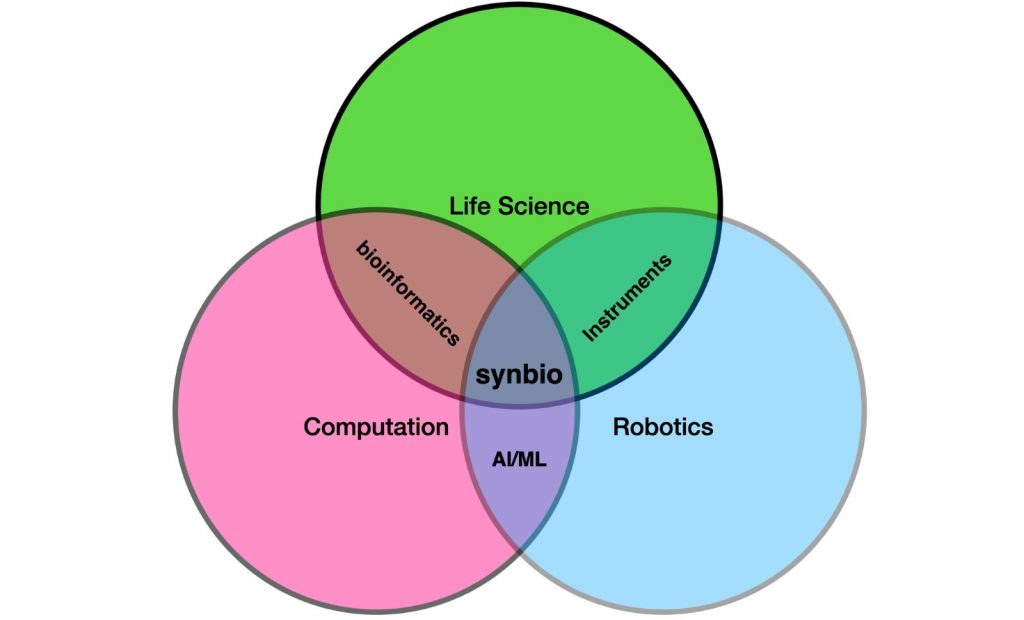
Fuente: Figura aportada por Andrew Hessel
Going to the subtitle of your book, what does it mean that we can rewrite life?
At the most fundamental level, life is code -genetic code-. The tools of synthetic biology are allowing us to read, edit, and write this code with precision, giving us new capabilities to understand, modify, and even create new life. I can’t overemphasize how significant this shift is. Our planet is unique in the solar system in that it teems with biological life -millions of species that range from the microscopic to massive blue whales- all built on the same universal biochemistry. Now we’re learning for the first time how to program that biochemistry.
What are the fields in which the most spectacular innovations could occur thanks to synthetic biology?
Like computing, synthetic biology promises to touch almost every area of innovation and human activity but the fields that are sure to be heavily impacted include:
A) Agriculture
B) Manufacturing
C) Medicine
D) Information Technology
E) Robotics
F) Sensing
Thanks to synthetic biology, will there be a blue ocean of new solutions and products, a new market that does not exist today?
Absolutely. Just as digital computing has changed the industries it has touched, sometimes fundamentally, and created completely new products, synthetic biology will become an engine of the future economy, creating trillions in new value.
Will we see advances in synthetic biology thanks to quantum artificial intelligence?
We have seen initiatives in this direction such as the Variational Quantum Eigensolver (VQE), led by Alán Aspuru-Guzik. Are there other projects in this area? How close are they to being really useful?
I believe the answer is yes. If quantum artificial intelligence is leading to better understanding of chemical structure and function, they will absolutely be a part of biochemical understanding and design. Indeed, Alán and others are already exploring this space. As for utility, Deepmind’s breakthrough work in predicting protein structures was a game-changing first step that is already proving very useful. But we can only imagine today how much more sophisticated our biological design and modeling tools may become in the future, or how they may be realized by synthetic biology.
In principle, all technology is agnostic in relation to good and evil. How can synthetic biology be directed towards the common good and avoid its misuse?
I believe we can take some cues from the history of computing and the internet, another programming technology and, significantly, one that we have complete understanding of, unlike life. We learned very quickly with computing that, while most people are non-malicious users of the systems, almost anything bad that could happen would happen, by either error, innocent curiosity, or nefarious intention. We cannot be naive with synthetic biology and assume everyone will use it for good. So what have we learned about keeping digital systems secure and online? We need continuous, automated monitoring to recognize activity that isn’t normal. We need countermeasures to thwart attacks. And we need to be able to restore critical systems from backup if they’ve been corrupted beyond repair.
This last one is perhaps the hardest, at least when it comes to life in the real world, as compared to organisms in a fermenter. I don’t have a solution for this. I personally believe the we’re also going to need the people involved in some areas of R&D, such as virus engineering, to be identified and licensed and the systems digitally transparent -with blockchains, for example- so they can be monitored by anyone.
In case of misuse of synthetic biology, what are the major risks we face?
Amy and I review nine big risks in the book. These include risks like the fact biology is unpredictable and dual-use is inevitable, to challenges with privacy and regulation, to genetic inequity and geopolitical challenges. The risk that concerns me the most is the engineering of infectious agents, particularly viruses, virus-like particles, and sporulating fungi. The Covid pandemic has demonstrated how difficult it is to defend society from a viral pathogen. Meanwhile, designing and synthesizing a virus just gets easier and cheaper as synthetic tools improve. This is a scary combination. Also, I live in an area where just about any material that is damp can seemingly be colonized in days by black mold. If this fungus was engineered to be more neurotoxic, it could make large geographical areas uninhabitable.
What will be the major drivers of synthetic biology?
Climate change, conservation, and aerospace will likely be among the largest drivers of the bioeconomy. Climate change is the challenge of our time and is closely linked with species conservation. The dramatic advancements in aerospace are opening new frontiers of exploration and engineering that will require breakthroughs in circular life support systems. Implemented on earth, these technologies could be seeds for urban communities that have very low impact on the environment.


